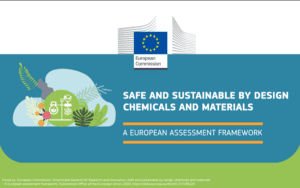The constitution of the parliament
As you may have read already in EuChemS Magazine or elsewhere, the European Parliament consists of Members of the European Parliament (MEPs), amongst others. In the 2024-2029 legislative cycle, the European Parliament will house 720 MEPs. These MEPs sit in party groupings, loosely organised groups of national parties across Europe, with similar ideologies – you can learn about it in more detail here. The recent elections allowed voters to decide how the 720 seats are distributed amongst party representatives. The results of the elections showed a moderate strengthening of right-wing and far right parties, while liberals and greens lost the most seats. However, the status quo was not upset, as the most prominent parties remained the centre-right European People’s Party (EPP) and centre-left Socialists & Democrats (S&D).
The identities of MEPs are quite relevant for EuChemS, as during science-policy events, EuChemS works with them to raise awareness of relevant issues. As MEPs work on specific topics, and have distinct areas of interests, part of EuChemS’ tasks is to identify MEPs, whose areas are chemistry/science-related, exemplified by our work with former MEP Maria Spyraki, who worked on the “Classification, Labelling and Packaging of Chemicals” dossier, thus her priorities aligned with EuChemS’. MEP’s prioritising specific science-policy topics and his activities related to EU research programmes remain for the next legislative cycle, as well as new MEPs with scientific experience arrive.
Identifying key MEPs will be greatly accelerated by the finalisation of parliamentary committees – parliament groups dealing with certain areas. Issues related to science and chemicals policy will likely end up on the desk of Committees on Environment, Public Health and Food Safety (ENVI) or on Industry, Research and Energy (ITRE) – as regular readers of EuChemS Magazine may have noticed. Therefore, following the constituent meetings of the committees between 22-25 July will be key, as we will see the MEPs whose role will be crucial for science-policy decisions.
As of now, the parliamentary election results are still preliminary, as parties and party groupings are allowed to negotiate until the constituent seating of the European Parliament, scheduled to be held on 16-19 July (although parties and/or individual MEPs are eligible to change allegiances at any point). This degree of uncertainty is illustrated by how initial reports showed the liberal-centrist “Renew” party becoming the 3rd largest in the parliament; however, after numerous new MEPs joined the right/far right European Conservatives and Reformists (ECR), while a party departed from Renew, it appears that ECR overtook Renew. In the meantime, a new right wing party grouping, named “Patriots” has also emerged, headlined by the French far-right party. However, as Renew remains more sympathetic to collaborate with as a centrist party than the extreme right, it still plays a role in defining the EU’s key positions, the so-called “top-jobs” – the distribution of which being one of the most exciting aspect of the post-election period.
Top Jobs
EU top jobs are senior official positions of EU institutions: namely the President of the European Council, the President of the European Commission, the President of the European Parliament and the High Representative of the Union for Foreign Affairs and Security Policy. While the Commission President and the Foreign Affairs chief’s appointment also dependent on the Parliament’s vote (in the case of the former, MEPs vote directly, while with regards to the latter, the European Parliament holds hearings, and votes on the complete European Commission), their nominations are a key milestone in the foundation of the new legislative cycle. This agreement between Member State Heads was reached on 27 June.
And without further ado, the recipients of the top jobs are the following: Ursula von der Leyen from EPP is the key candidate for the President of the European Commission for a second term – however, while the numbers are in her favour, her election by the European Parliament is not yet guaranteed according to the media. Estonian Prime Minister Kaja Kallas from Renew, known for her hardline approach and strong criticism towards Russia is nominated to be High Representative of the Union for Foreign Affairs and Security Policy, replacing Joseph Borell. Former Portuguese Prime Minister Antonio Costa, affiliated with S&D will take over as the President of the European Council (not to be confused with the Council of the European Union, which has a rolling presidency held by each member state for six months) from Charles Michel. Last but not least, the Parliament’s presidency is expected to remain with current President Roberta Metsola until half-time of the legislative cycle, after which, S&D is expected to take over.
Later in the year, Commissioners for specific Directorate-Generals on the subject areas the Commission deals with, will be named. They will be audited by the Parliament as well.
Coming up in the next 5 years…
The 27 June meeting also brought us the final version of the 2024-2029 Strategic Agenda. For each 5 year legislative term, EU leaders agree on the key focus of the union, and summarise these high level strategic directions in key points.
For this term, democratic values and rule of law is on the top of the strategic agenda, which prioritises upholding them within, and promoting them beyond the borders of the EU. Closely related to this is the prioritisation of defence, and harmonisation of external action. While the defence-related focus is a response to Russia’s aggression against Ukraine, this priority also concerns migration-related issues. Last but not least, economic competitiveness and prosperity was highlighted as a cornerstone. While in the previous agenda, sustainability and environment-related issues were listed as a priority on their own, this time they are a subset of the priority related to economic prosperity. This means that, while green topics have not lost their relevance, they are set to be approached from an economy-related angle in the upcoming years.
With regards to the European Parliament, certain dossiers, which were not finished until the elections, were put into different brackets. Dossiers adopted, but unfinished – most relevantly to chemicals policy, the revision of Registration, Evaluation, Authorisation and Restriction of Chemicals (REACH) must be continued by the new European Parliament.
Key takeaways for science-policy
Summarising the changes, one can notice changes which will reflect on science-policy. Considering the priority on security, and the newfound 7.9 billion defence fund, an increase in defence R&D is likely on the table. However, opinions on the inclusion of so-called “dual use” research – the results of which can be employed for not only civilian purposes but research as well – into the upcoming research framework programme are divided.
Many of the science-policy initiatives EuChemS is involved in are related to sustainability, such as the Zero Pollution Stakeholder Platform or the Chemicals Strategy for Sustainability. As stated above, they must be carried over from the previous legislative term, and they are not expected to conclude soon, however, the approach towards them could shift towards an economic prosperity related focus. The parliament’s constitution also seems to reflect this trend as the green party shrank, while EPP, which favours competition and the EU’s economic leadership gained seats. Knowledge valorisation in industry, and investment in industry R&I are likely to be seen in the future.
Ultimately, as of now only high-level strategic directions are outlined, while details will emerge in the coming months, or even years. EuChemS will monitor, and participate in science policy, and thus, the readers of EuChemS Magazine will be among the first to be informed about relevant developments.



